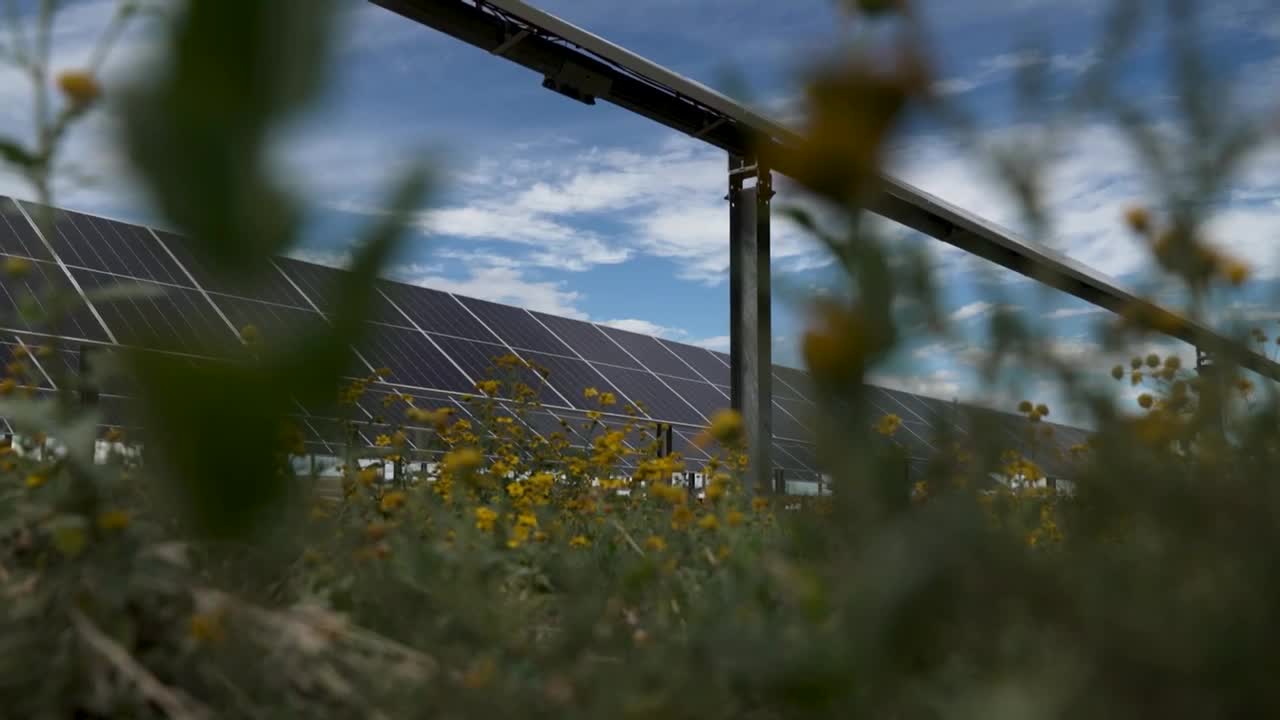AURORA, Colo. — Pivot Energy is "harvesting the sun twice" by providing a home to pollinators at its Aurora solar farm.
Bright yellow flowers can be spotted in between the rows of solar panels at Kacie Peters Community Solar Garden, with bees buzzing on 40 acres of land.
"The flowers and all of the seeding was done before we started construction, and that helps to make sure that all of this vegetation establishes better on site," said Angie Burke, director of operations and maintenance at Pivot Energy. "This site has been operational for almost two years now, and the site overall is five megawatts in size. That means we're powering about 1,200 low-income homes across Colorado."
Burke said the energy is going to Xcel Energy's energy grid, and the lower cost of production results in savings for about 1,200 low-income households. This is Pivot Energy's first solar farm to host honey bee colonies.
- Burke explains how the solar farm provides a dual use in the video below
Pivot Energy works with Flower Street Farm, which cares for the 20 bee colonies on the property. Bryan Zavada, co-owner of Flower Street Farm, said he runs around 100 colonies on 12 different sites, with this being the largest one.
"I've got a lot of like backyard colonies, so it's like two colonies here, four colonies there, and that was hard for me to take care of the bees because I was doing a lot of driving," said Zavada. "So if I'm doing one drive out to take care of 20 colonies as opposed to a whole bunch of driving to take care of 20 colonies, I can be more efficient as a beekeeper as well, so it allows me to be a better manager of their health."

There is also a sweet outcome thanks to the bees. Flower Street Farm makes different types of honey and sells it at local farmers' markets, including City Park and Lafayette. Zavada said he also sells bees to newer beekeepers.
"So one of the things I do in the spring is split my colonies and sell bees to newer beekeepers, and having 20 colonies out here and a large space to work bees allows me to make those splits, put them somewhere. My queens can get mated, and then I can sell those small colonies to a newer beekeeper," Zavada said.
On Monday, Zavada checked on the colonies to see if the bees are ready for the winter, ensuring they have enough food, and to check if their mite population is low.
- Watch his process in the video player below
While it may seem like a unique combination, the bees and the solar panels demonstrate a unique solution to habitat enhancement and hopefully bring a boost to these pollinators' population.
"This is Pivot Energy's first pollinator habitat site where we actually have bees physically housed on site; it won't be our last, though," said Burke. "We've been so thrilled with this partnership and being able to even consider doing more research here, having more bee colonies, other populations we can support."








